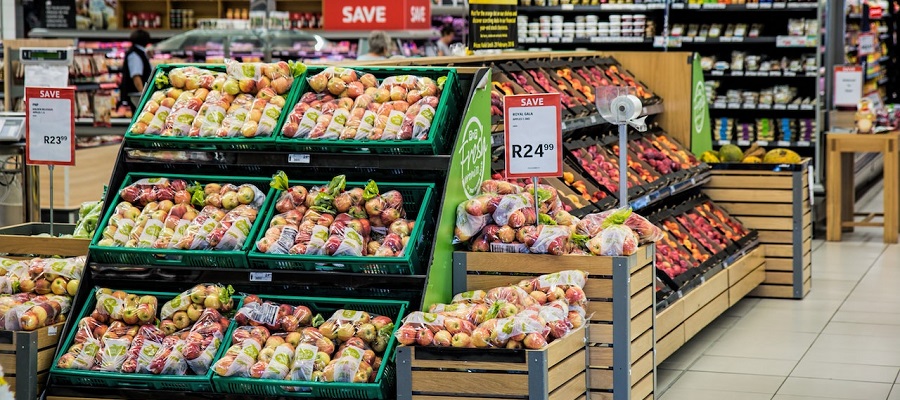Grocery wholesale refers to the business of buying and selling grocery products in large quantities at a discounted price. Grocery wholesalers typically purchase products directly from manufacturers or distributors and then sell them to retailers, such as supermarkets, convenience stores, and independent grocery stores. The goal of grocery wholesale is to provide retailers with a reliable source of high-quality products at a lower cost, which allows them to offer competitive prices to their customers. Grocery wholesalers often specialize in a particular type of product, such as fresh produce, dairy products, or non-perishable items, and may offer additional services such as storage, transportation, and delivery.
What are the risks of being a grocery wholesaler?
Die Tätigkeit eines Lebensmittelgroßhändlers ist mit einer Reihe von Risiken und Herausforderungen verbunden. Einige der potenziellen Risiken sind:
-
Financial risk: Running a wholesale business involves significant upfront costs, such as purchasing inventory and investing in infrastructure. There is also the risk of financial losses if sales do not meet expectations or if there are unexpected costs or challenges.
-
Legal risk: Wholesalers may face legal risks related to contracts, intellectual property, and consumer protection laws. It is important for wholesalers to be aware of and comply with relevant legal requirements in order to avoid potential legal issues.
What problems are grocery wholesalers facing?
There are a number of challenges and issues that grocery wholesalers may face. Some of the common ones include:
-
Competition: The grocery wholesale industry is highly competitive, and wholesalers must continually work to differentiate themselves from their competitors in order to attract and retain customers.
-
Margins: Wholesale margins can be thin, and it can be difficult for grocery wholesalers to maintain profitability in a competitive market.
-
Supply chain issues: Grocery wholesalers must navigate complex supply chains and may face issues such as delays, shortages, or quality issues with their products.
-
Customer demands: Retailers and consumers have high expectations for the quality, variety, and availability of grocery products, and wholesalers must work to meet these demands in order to satisfy their customers.
-
Changing market conditions: The grocery industry is subject to fluctuations in demand and changes in consumer preferences, which can impact the success of wholesale operations.
-
Regulatory compliance: Wholesalers must adhere to various regulations and standards related to food safety, labeling, and environmental sustainability, which can be challenging to manage.
Can Online marketplaces help grocery wholesalers grow their business?
Online marketplaces can be a useful tool for grocery wholesalers to reach a wider audience and potentially grow their business. By selling products on an online marketplace, such as Amazon or Alibaba, wholesalers can expose their products to a larger pool of potential customers, including individual consumers and smaller retailers. This can help to increase sales and expand the reach of the business.
Additionally, online marketplaces can provide a platform for wholesalers to showcase their products and build their brand. They can also offer features such as customer reviews and ratings, which can help to build trust and credibility with potential customers.
However, it's important to note that selling on an online marketplace also comes with its own set of challenges. Wholesalers may need to compete with other sellers for visibility and may face competition on price. They will also need to manage fulfillment and shipping logistics, and may need to pay fees to the marketplace for the privilege of using their platform. Despite these challenges, many grocery wholesalers have found success by selling their products on online marketplaces and it can be a valuable tool for growing their business.
What skills do you need in wholesale?
There are a number of skills that can be helpful for those working in the wholesale industry, including:
-
Business acumen: Wholesalers need to have a strong understanding of business principles and how to effectively manage a wholesale operation. This includes knowledge of financial management, marketing, sales, and supply chain management.
-
Relationship building: Wholesalers often work with a variety of partners, including manufacturers, distributors, and retailers. Building and maintaining strong relationships with these partners is key to the success of a wholesale business.
-
Negotiation skills: Wholesalers need to be able to negotiate effectively with suppliers, customers, and other partners in order to secure favorable terms and pricing.
-
Communication skills: Wholesalers need to be able to communicate clearly and effectively with a variety of stakeholders, including employees, partners, and customers.
-
Attention to detail: Wholesalers need to be organized and detail-oriented in order to manage inventory, track orders, and ensure accurate billing and payment.
-
Problem-solving skills: Wholesalers may encounter a variety of challenges and issues in the course of their business, and being able to identify and solve problems effectively is important for success.
-
Adaptability: The wholesale industry is subject to constant change, and wholesalers need to be able to adapt to new market conditions and customer demands in order to remain competitive.
How fast does a wholesale business typically grow?
The rate of growth for a wholesale business can vary greatly depending on a variety of factors, such as the type of products being sold, the target market, the level of competition, and the effectiveness of the business's marketing and sales efforts. Some wholesale businesses may experience rapid growth in the early stages, while others may grow more slowly over a longer period of time.
There are also a number of external factors that can impact the growth of a wholesale business, such as changes in the economy, shifts in consumer demand, and the emergence of new technologies or competitors. It is important for wholesalers to be aware of and adapt to these changes in order to continue growing their businesses.
Overall, it is difficult to generalize about the rate of growth for wholesale businesses, as it will depend on the specific circumstances of the business and the industry in which it operates.


